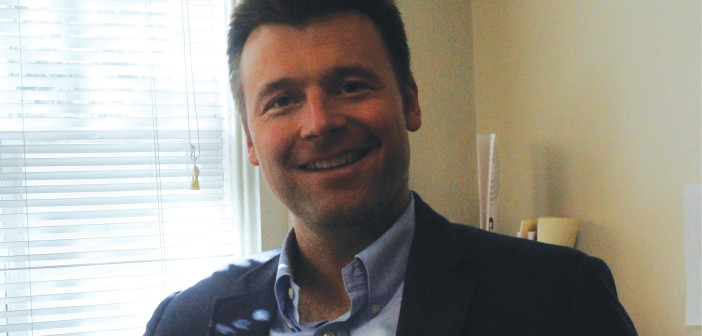Dan Schryer
Contributing Writer
With voting season on the horizon and a litany of international concerns hovering over our collective heads, Americans all over the country are struggling to solidify their political identities. It can be difficult not only to make sense of every headline that one may come across, but also to know what to take out of this information.
Enter Professor William Muck, a political science instructor determined to bring political activism and awareness back to the North Central campus. Recently, Muck hosted a Topics in Politics lecture (or TIP Talk) with fellow professors discussing the role violence plays in the political world.
As college students, we may feel that international and local politics only serve as another distraction from our already demanding schedules. However, Muck urges students, and Americans everywhere, to take a walk on the political side. “I think to be political is to be aware of the environment around you, and not just your local political environment but that circle that spreads to a global level,” says Muck. “It doesn’t mean you have to be an expert in every little thing but you need to be somewhat aware that these conversations are occurring.”
Unfortunately, it would appear that most Illinois residents are choosing not to heed Muck’s advice. According to the Cook County Clerk’s Post-Election Report, a record low of 19% of Illinois residents came out to vote for the most recent presidential election. This lack of active political involvement speaks to a nationwide complacency regarding most political matters, much to the chagrin of a certain political sciences professor. “If you’re going to be an engaged citizen, you have a responsibility to understand the world you live in,” says Muck.
Most would agree that college students are in a social class all their own. Professor Muck urges students campus-wide to take advantage of their unique position while they still can. “For many college students it’s the first time they’ve really grappled with big, political ideas. It’s very exciting. There’s a lot of enthusiasm. It’s a great time to throw yourself fully into a political debate in ways that you can’t always do later in life.”
Muck emphasizes taking advantage of the many freedoms college presents.“One of the most exciting things about being on a college campus is there’s this intentional space for big, bold conversations about political ideas.”
Still, not all students are as worldly as some, leaving a large population of the student body unaware of conflicts going on overseas, or even in our own backyards. Muck urges students to maintain an atmosphere of political awareness through a variety of means.
In addition to attending the TIP Talks set up by the political sciences department and taking courses regarding contemporary political issues, Muck asks the ill-informed to make use of social media to stay up to date. “If you want to find information, and quickly, I don’t think there’s anything better than Twitter right now,” says Muck. The professor also drew attention to the flaws of such technological marvels, citing self-bias and lack of news variety; “Everybody knows that you can also self-select…if you’re liberal you go out and find liberal news, if you’re conservative you find conservative news, and you’re not getting cross-pressures from that other side, so that’s a downside…. So be careful,” Muck urged. “Sometimes it can be fun to follow someone who you agree with, but challenge yourself and sometimes follow somebody who you might disagree with. It might push you a little bit.”
Muck also pointed to the distinction between news and politics, not putting the importance of one over the other, but commenting that “having a deeper, more systemic, more theoretical or even conceptual understanding of politics will help you put current events in a better context.”
Muck also had this advice for students looking to make well-informed decisions in the upcoming state elections: “I think the best way to go is to begin by reading the newspaper, hop on and read the Chicago Tribune, get on Twitter, get on Facebook and start reading, use social media. That’s a great way to start to begin to know a little bit about the candidates.” Added Muck, “Political science classes are also a really good way to do that, and our classes aren’t structured in a way that we’re diving into the governor’s race, but we’ll talk to you generally about politics and the political dynamics that are playing out behind some of those elections. That can give you some if the framework to appreciate the elections themselves.”
State election polls open on Sunday, Nov. 2, and the next lecture in the political science department’s TIP Talks series will take place sometime during winter term.

